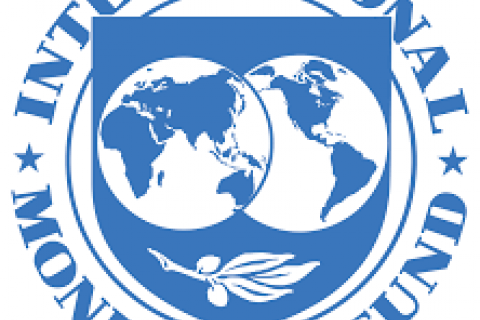The Executive Board of the International Monetary Fund (IMF) has approved a 14-month Stand-By Arrangement (SBA) for Ukraine, it said late on 18 December.
The arrangement amounts to the equivalent of SDR 2.8 billion (about US$3.9 billion, 139 per cent of quota). The Board also took note of Ukraine’s decision to cancel the arrangement under the Extended Fund Facility for Ukraine that was approved on 11 March 2015.
The authorities’ economic program supported by the SBA will build on the progress made under the EFF arrangement. The SBA will provide an anchor for the authorities’ economic policies during 2019 and focus on maintaining macro-economic and financial stability. The program will focus on four priorities: (i) continuing the ongoing fiscal consolidation to keep public debt on a downward path; (ii) further reducing inflation, while maintaining a flexible exchange rate regime; (iii) strengthening the financial sector, promoting asset recovery, and reviving bank lending; and (iv) advancing a focused set of structural reforms, particularly to improve tax administration, privatization and governance.
The approval of the SBA enables the immediate disbursement of SDR 1 billion (about US$1.4 billion). The remainder will be available upon completion of semi-annual reviews.
Following the Executive Board’s discussion, Mr. David Lipton, First Deputy Managing Director and Acting Chair, said:
"The Ukrainian authorities have successfully restored macro-economic stability and growth, with support from the international community. Prudent fiscal and monetary policies and a flexible exchange rate regime have helped reduce fiscal and current account deficits. Reserves have been partly rebuilt and confidence has improved.
"A new Stand-By Arrangement will provide an anchor for the authorities’ economic policies during the coming year, preserving recent economic gains and paving the way for higher sustainable growth. Together with support from the World Bank and the European Union, the arrangement will help Ukraine meet its financing needs.
"The authorities’ program focuses on maintaining macro-economic stability, notably through continued fiscal consolidation and inflation reduction. This will be accompanied by targeted reforms to strengthen tax administration, governance, and the financial and energy sectors, while continuing to provide social assistance for the most vulnerable.
"The authorities remain committed to fiscal discipline to place public debt firmly on a downward path. It will be important to resist pressures to increase spending or lower taxes, while renewing efforts to improve public financial management and revenue administration.
"Monetary policy aims to reduce inflation and rebuild international reserves within a flexible exchange rate regime. Safeguarding central bank independence will be crucial in this regard. Efforts are underway to address nonperforming loans, recover assets from failed banks, and improve governance in state-owned banks.
"Further progress on anti-corruption reforms and privatization will help attract investment and improve the business climate more broadly. Priorities include operationalizing the anti-corruption court, privatizing large state-owned enterprises, streamlining regulations, and advancing land reform.








